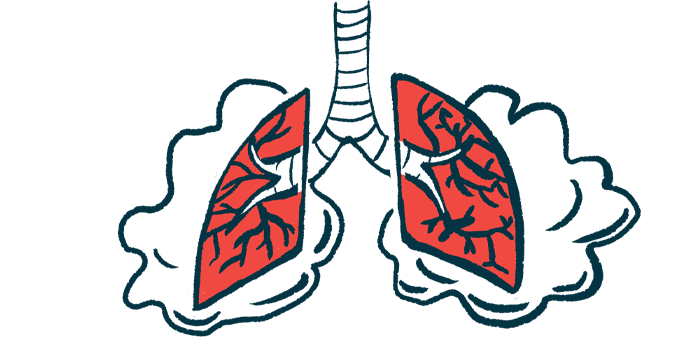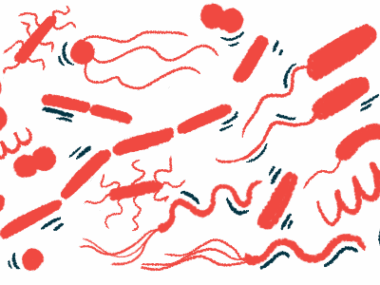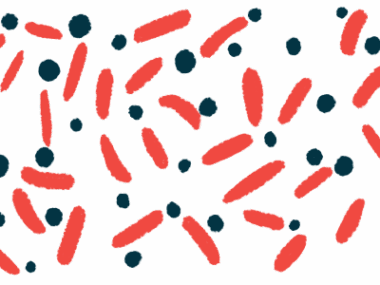CF-370 Reduces Hard-to-treat Bacteria in Rabbit Model
Written by |

CF-370, an expeimental therapy by ContraFect, reduces the number of hard-to-treat Pseudomonas aeruginosa bacteria in a rabbit model of pneumonia, an infection that inflames the lungs.
P. aeruginosa, the most common cause of lung infections in people with cystic fibrosis (CF), can evade the body’s immune system and become resistant to antibiotics.
Studies in rabbits and lab-grown bacteria showed that CF-370 can get around the bacteria’s resistance strategies and even inhibit resistance to commonly used antibiotics.
These data were presented at the 32nd European Congress of Clinical Microbiology & Infectious Diseases (ECCMID) annual meeting, which was held April 23–26 in Lisbon, Portugal.
“These data highlight the potential of CF-370 to demonstrate superior clinical outcomes in patients with hospital-acquired and ventilator-associated pneumonia, infectious diseases with high morbidity and mortality despite current standard of care with traditional antibiotics, which face the ongoing threat of increasing antimicrobial resistance,” Cara Cassino, MD, executive vice-president of research and development and chief medical officer at ContraFect, said in a press release.
CF-370 is a lab-made lysin, a protein that can make bacteria and other cells break open by causing damage to their plasma (outer) membrane.
Previous work in a rabbit model of pneumonia caused by highly resistant P. aeruginosa showed CF-370 extends survival and reduces bacteria counts in the lungs, the kidneys, and the spleen compared with a placebo.
In a presentation titled “In vivo efficacy of CF-370 alone and in addition to amikacin in the rabbit acute pneumonia model caused by an extensively drug-resistant (XDR) Pseudomonas aeruginosa, AR-769,” Dario Lehoux, PhD, showed that the number of bacteria can be further reduced when CF-370 is used in combination with amikacin, an antibiotic to which the bacteria remain susceptible. Lehoux is head of preclinical development at ContraFect.
Six hours after infection with P. aeruginosa, rabbits were assigned to receive an intravenous (into-the-vein) injection of either a placebo or CF-370 (3 mg/kg or 10 mg/kg), or three doses of amikacin 4 mg/kg at eight-hour intervals. Some rabbits received a combination of CF-370 and amikacin. One day after the last dose of amikacin, scientists watched for changes in the number of bacteria.
While amikacin reduced bacteria in the lungs, CF-370 reduced the number even more. When given in combination with amikacin, the reduction was even more pronounced, particularly at a high dose of 10 mg/kg.
Similar reductions were observed in the kidneys and the spleen. “These data support the potential of CF-370 to improve clinical outcomes when used in addition to selected antibiotics,” Lehoux wrote.
In a poster titled “Lysin CF-370 exhibits a low propensity for decreased susceptibility in Gram-negative (GN) ESKAPE pathogens,” the company showed that CF-370 may continue to work against a range of bacteria, including P. aeruginosa, as they are transferred across different environments, one after the other for 28 days (about one month). This means the bacteria may not become resistant to CF-370 as they do to most antibiotics.
Another poster, titled “Lysin CF-370 suppresses in vitro resistance in Pseudomonas aeruginosa to meropenem, tobramycin and levofloxacin,” further showed that CF-370 may also inhibit the resistance of P. aeruginosa to meropenem, tobramycin, and levofloxacin — three antibiotics commonly used in the clinic.
“The wealth of data presented at ECCMID provide compelling evidence of the prospective potent efficacy and potentially promising utility of our direct lytic agents against life-threatening pathogens and combatting antimicrobial resistance,” Cassino said.
ContraFect raised up to $18.9M in funding from the Combating Antibiotic Resistant Bacteria Biopharmaceutical Accelerator (CARB-X) in 2020 and entered into a funding agreement with the CF Foundation to advance the development of CF-370.







